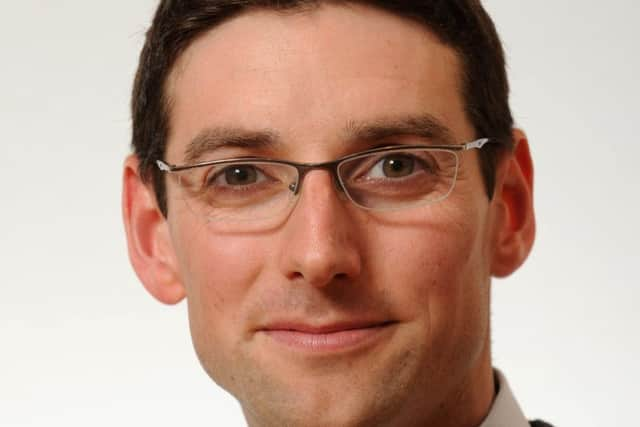Sebastian Burnside: More fireworks in store for 2017
This article contains affiliate links. We may earn a small commission on items purchased through this article, but that does not affect our editorial judgement.


There will be plenty of surprises in store for 2017, so what are our economic prospects and what have we learned in the last 12 months?
We’ve learned that the economy continued to growth despite another year of low oil prices. Total expenditure in the oil and gas industry could be as much as £10 billion lower this year than 2014, according to Oil & Gas UK. Those cutbacks have meant lower pay, fewer jobs and less revenue for the thousands of businesses in Scotland that serve the industry.
Advertisement
Hide AdAdvertisement
Hide AdThe lowest year for oil prices since 2004 could easily have wiped growth out entirely, but the latest estimates from halfway through the year show the economy 0.7 per cent larger than 12 months earlier. A resilient performance.


Brexit has been the dominant theme for the second half of the year. We don’t yet know what sort of deal we’ll get when we leave the EU but we are starting to understand better how the economy has reacted to the result of the referendum.
More firms reported a rise in business in the three months after the referendum than saw activity falling, according to the Scottish Business Monitor. It is early days but if firms continue to see demand they’ll have little reason to shed jobs.
Consumers have refused to get worried so far. Retail sales were up 2.1 per cent in the third quarter, a substantial boost. The housing market shows little sign of suffering, transactions there are rising too even though the backdrop has been muddied by tax changes. This all boils down to very little measurable impact from business or consumers to the referendum result so far.


What does this tell us about 2017? Three factors look significant: oil, inflation and Brexit speculation.
Oil is back above $50 after a new Opec agreement to cut production. That should help the North Sea’s finances and limit any new rounds of cost-cutting.
Sterling’s weaker exchange rate will mean a resurgence of inflation. The Bank of England expects prices to rise by almost 3 per cent next year. That will mean less spending power for most households, unless employers become unusually generous with their pay settlements.
2017 is also the year when Brexit negotiations will begin in earnest. The speculation about what form of arrangement the UK and Scotland specifically will strike is certain to be the most written-about topic. But it is perfectly possible that we could find ourselves sat here in 12 months time none the wiser about how this particular tale will end. Most EU deals involve brinkmanship and uneven progress. There’s little to suggest this will be any different.
Advertisement
Hide AdAdvertisement
Hide AdContinued uncertainty can be a drag on growth but 2016 shows that it need not extinguish it altogether. The pragmatic response of most businesses and consumers to the political turmoil of this year stands us in good stead for the next.
• Sebastian Burnside is senior economist at Royal Bank of Scotland
